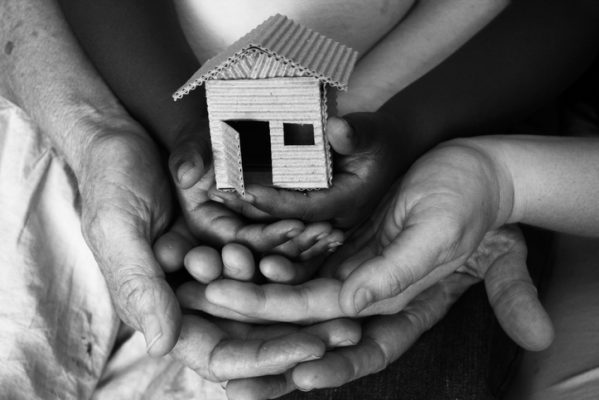Openness takes time to develop. Like an in-law relationship, it requires ongoing fine-tuning and can be complicated. Because the adoptive parents are raising the child, responsibility for encouraging openness falls to them first.
Understanding the challenges for birth families can help adoptive parents steward this relationship.
1. Overcoming Safety and Shame
Your child’s birth mom may have an addiction, a belligerent boyfriend or mental health challenges. These instances leave many adoptive parents wondering what, if any, contact should be made with their child because they want to protect them both physically and emotionally. Birth parents may also experience shame or feelings of not meeting the child’s expectations. They met not respond to letters or fail to show up because they don’t believe they are worth of a visit. Set boundaries for safety and comfort—but don’t presume absence means the relationship is not important.
2. Overcoming Unmet Expectations
Sometimes openness is not what your child expected either. Most kids have a picture of who their birth parents are and many expect to find a birth family that will be the perfect fit. They envision someone who will look and sound like them – someone who they will get and who will get them. Your child may expect to feel an affinity that they don’t feel for their adoptive family, but the birth family may not meet those expectations at all. Children recognize how they are unlike us in temperament, academic capacity or appearance. They may look to their birth parents for a template and worry they are fated by biology. Listen to your child. Offer understanding and let them know that what they’re feeling is okay – it doesn’t make them a bad person. This is often another time when families will reach out for counseling and support.
3. Overcoming Privacy and Boundary Issues
Sometimes you don’t find yourself on the same page as your child’s birth parents. Your child’s birth mom might post pictures on Facebook that you don’t want to be viewed publicly. She may be too intrusive and show up at your doorstep unannounced. Or she may even be advocating a different set of values to your child. Sharing your expectations and setting boundaries between birth and adoptive families can be tough to handle.
All parties involved need to be reminded that this relationship is in the best interest of your child. Early in your openness, discuss your privacy preferences. Be respectful. Be understanding. Set boundaries that keep your child safe and the lines of the relationship clear. Neither birth nor adoptive parents should be sharing personal details of a child’s life online. That information should be held until the child matures and can have a say.
4. Overcoming Grief and Pain
At the core of adoption is loss. For some birth parents, it may be too hard to see someone else raising their child, at least at the beginning. For others, the initial contact is reassuring, but once they know that their child is settled into his new family, they may not feel the intense need for future contact. They love their/your child, but seeing that child reminds them of the parenting role that they have relinquished. They may hope that avoiding contact will allow her to put the pain of adoption away and start life anew. This is more likely if they have not defined their role and importance to the child and your family.
With time, these feelings may resolve. Use The Cradle as an intermediary. Send us updates and pictures; we’ll save them. Should they feel ready in the future to re-approach openness, information and your good wishes will be waiting for them. Also, feel free to ask us to reinitiate contact to learn if they are willing to re-open the relationship.
5. Overcoming the “No Call, No Show”
When your child’s birth parents say they are going to visit or write but don’t come, or arrive very late, your child may be painfully disappointed. This causes many parents to struggle with whether or not to tell their child ahead of time and whether or not to continue making plans with their child’s birth parents.
Keep trying. If you have lost touch, consider contacting The Cradle for assistance in re-establishing contact. As you schedule a visit or request a picture, explain the benefit for your child. If your child is young, choose a fun activity at the park or zoo where you and your child might enjoy an outing, regardless of who else can join you. For older children, explain your intent and concerns, and ask how much they want to know until their birth parent actually responds.
Consider using a therapist to help you, or your older child, sort through feelings of disappointment at being “abandoned” again, or to assist in outreach to the birth parent. Disappointing your child is not likely the birth parent’s intent, but it may feel that way to a child. And it may be hard for an adopted child to talk to one mom about the other without feeling disloyal or wanting to protect the adoptive parent from their grief.














